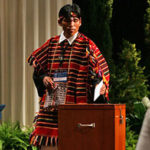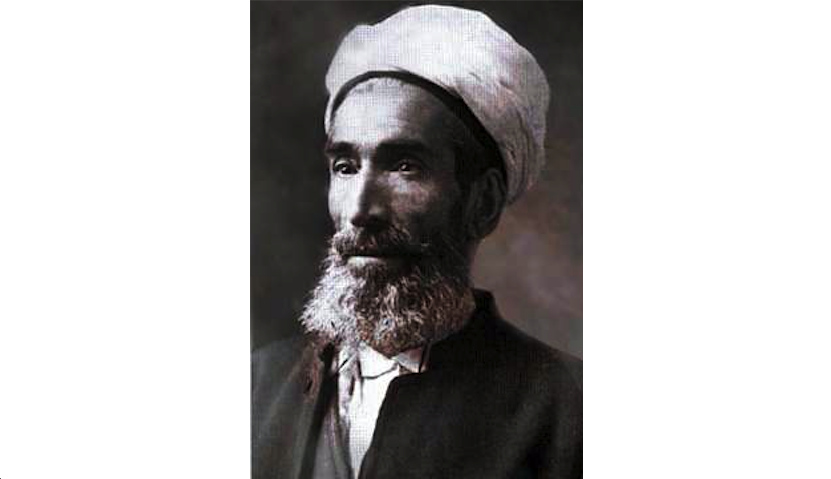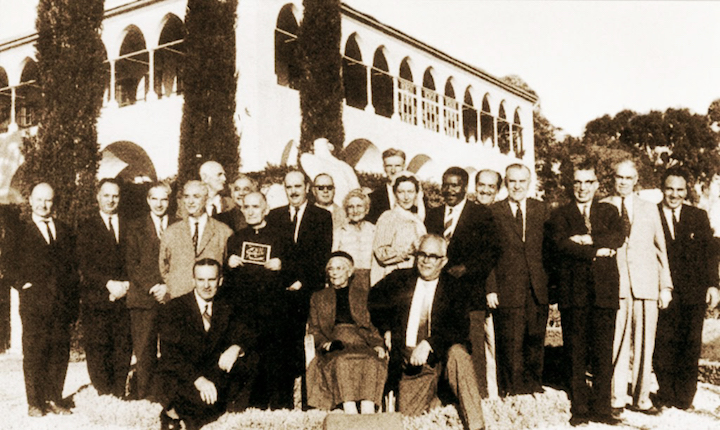
No Human Being is Unclean

Bahá’u’lláh abolishes the concept of “uncleanness”. In different cultures, at different times, human beings and things have been held to be “unclean” – in the specific case of religion, “ritually unclean”. In 1873, Bahá’u’lláh wrote:
God hath … abolished the concept of “uncleanness,” whereby divers things and peoples have been held to be impure.… Verily, all created things were immersed in the sea of purification when, on that first day of Riḍván, We shed upon the whole of creation the splendors of Our most excellent Names and Our most exalted Attributes.[1]
Bahá’u’lláh’s purpose in doing so is suggested in the words that follow shortly after:
Consort ye then with the followers of all religions, and proclaim ye the Cause of your Lord, the Most Compassionate; this is the very crown of deeds, if ye be of them who understand.[2]
This purpose flows throughout Bahá’u’lláh’s teachings. Thus, in a similar vein Bahá’u’lláh’s writings urge friendship and association among religions.
… “Consort with the followers of all religions in a spirit of friendliness and fellowship.” Whatsoever hath led the children of men to shun one another, and hath caused dissensions and divisions amongst them, hath, through the revelation of these words, been nullified and abolished.[3]
Or even more generally,
They that are endued with sincerity and faithfulness should associate with all the peoples and kindreds of the earth with joy and radiance, inasmuch as consorting with people hath promoted and will continue to promote unity and concord, which in turn are conducive to the maintenance of order in the world and to the regeneration of nations. Blessed are such as hold fast to the cord of kindliness and tender mercy and are free from animosity and hatred.[4]
The following reflects generally on examples where human beings have been treated as if they are “dirty” – to be avoided by “clean” people or to be regarded with contempt and excluded from society.
Institutional forms are not necessarily familiar everywhere in the world, but the informal forms of disdain, prejudice and contempt for other human beings are well known. Sometimes racism has involved the idea that certain races will “pollute” an otherwise “pure” population. And people of the target group have been held unfit to be married. In many states of the United States, for a time, such thinking led to laws against race mixing, making it illegal for black and white to marry. The term “racial hygiene” (i.e., cleanliness) was adopted by eugenicists as a slogan to justify separation of people on presumed genetic grounds. Disdain by the rich for the poor with a consequent social and economic exclusion is another example where human beings have been regarded as “dirty” by a whole sector of society.
The more specific case of “ritual” uncleanness of people is familiar from the case of untouchability in India, where certain castes or professions have been considered “unclean”. Traditionally considered religiously sanctioned, the practice has been illegal and prohibited in India since the adoption of the constitution in 1947. Some traditional Shia Islamic doctrines regarding certain people (for example, Jews or Baha’is) as unclean and not to be associated with are another example. In Europe, for many centuries the Jewish population was kept in separate ghettoes and marked out by special clothing and symbols.
The concept of ritual uncleanness is also associated with the exclusion of women, for example, with menstruating women regarded as unclean in some cultures or religions (for example, in ancient Jewish law).
Bahá’u’lláh has abolished the concept. May we all treat each other with friendship and kindness and welcome each other into our company.
This article is the 7th in a series of what I hope will become 200 articles in 200 days for the 200th anniversary of the birth of Bahá’u’lláh. The anniversary is being celebrated around the world on 21 and 22 October 2017. The articles are simply my personal reflections on Bahá’u’lláh’s life and work. Any inadequacies or inaccuracies in these articles are solely my responsibility.







